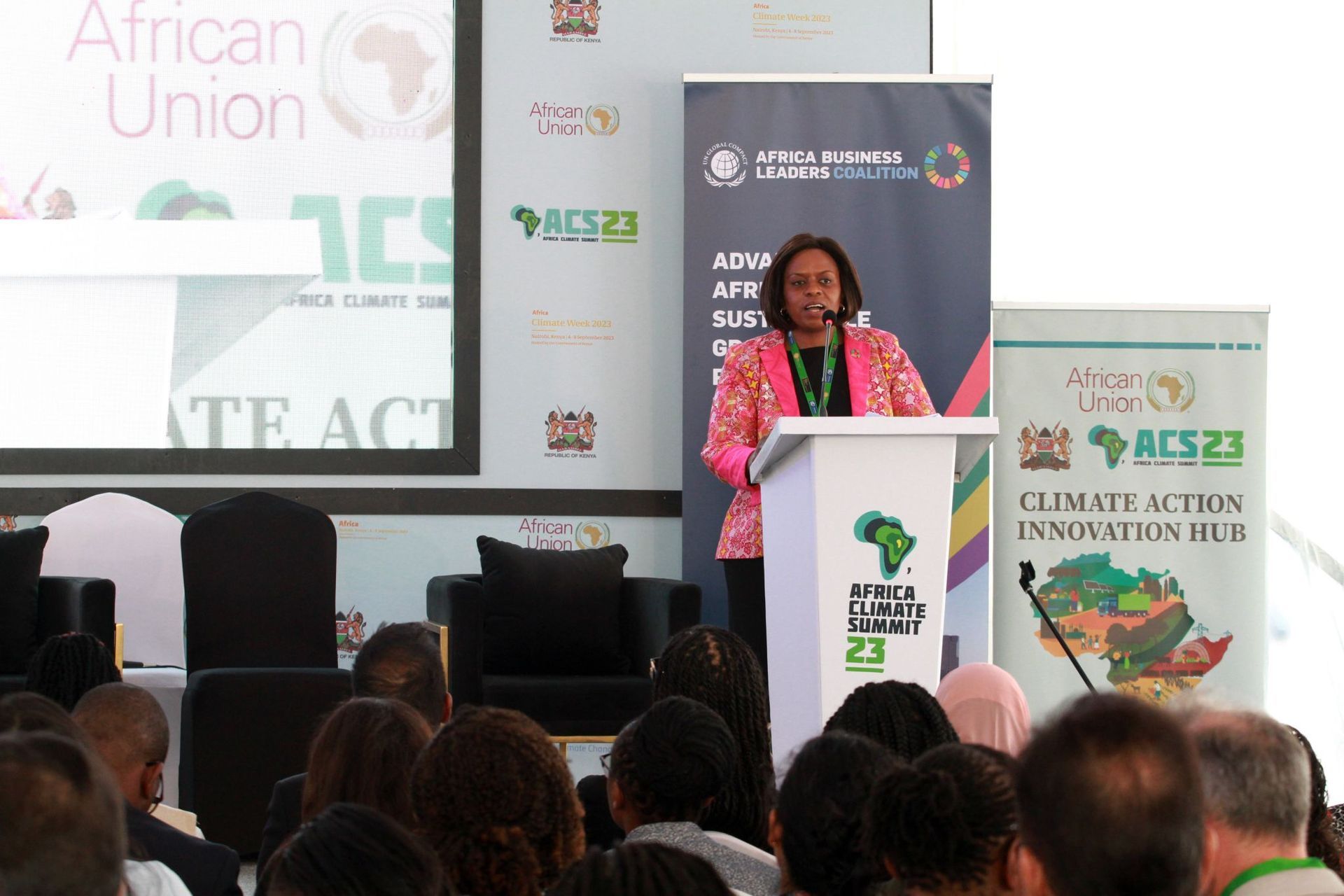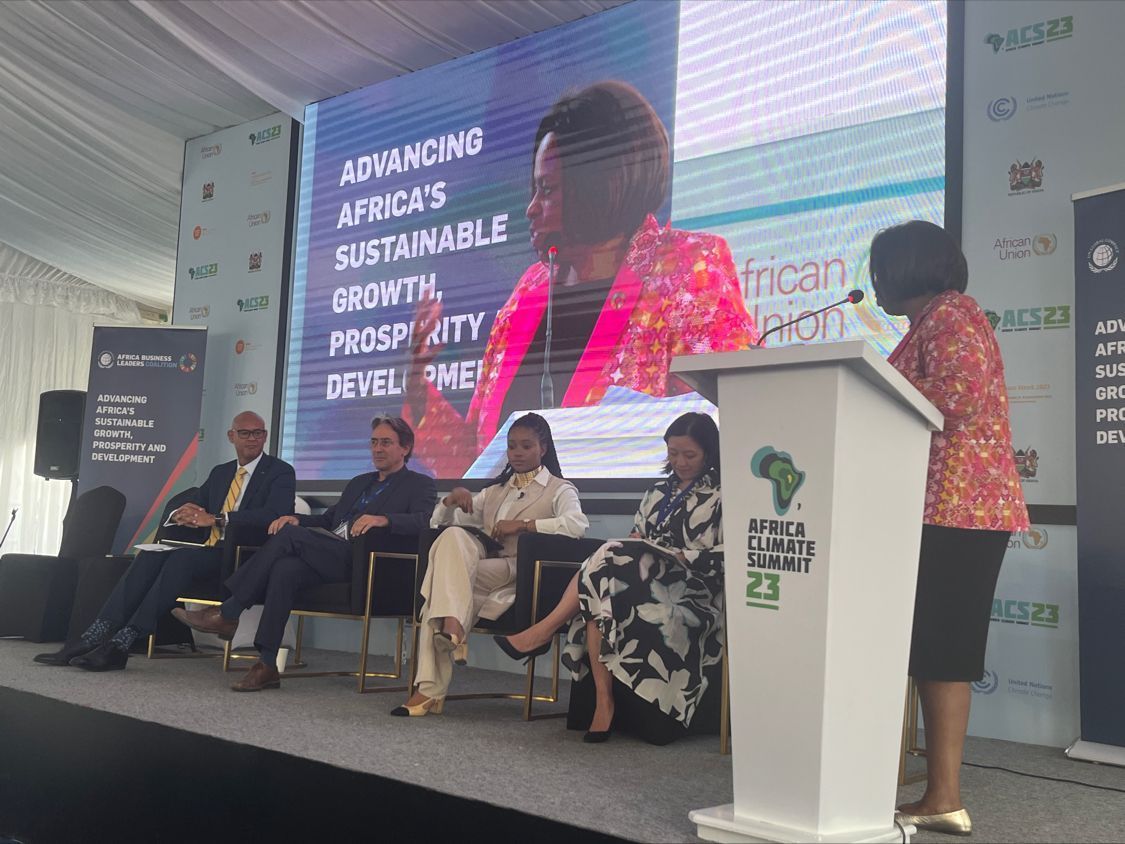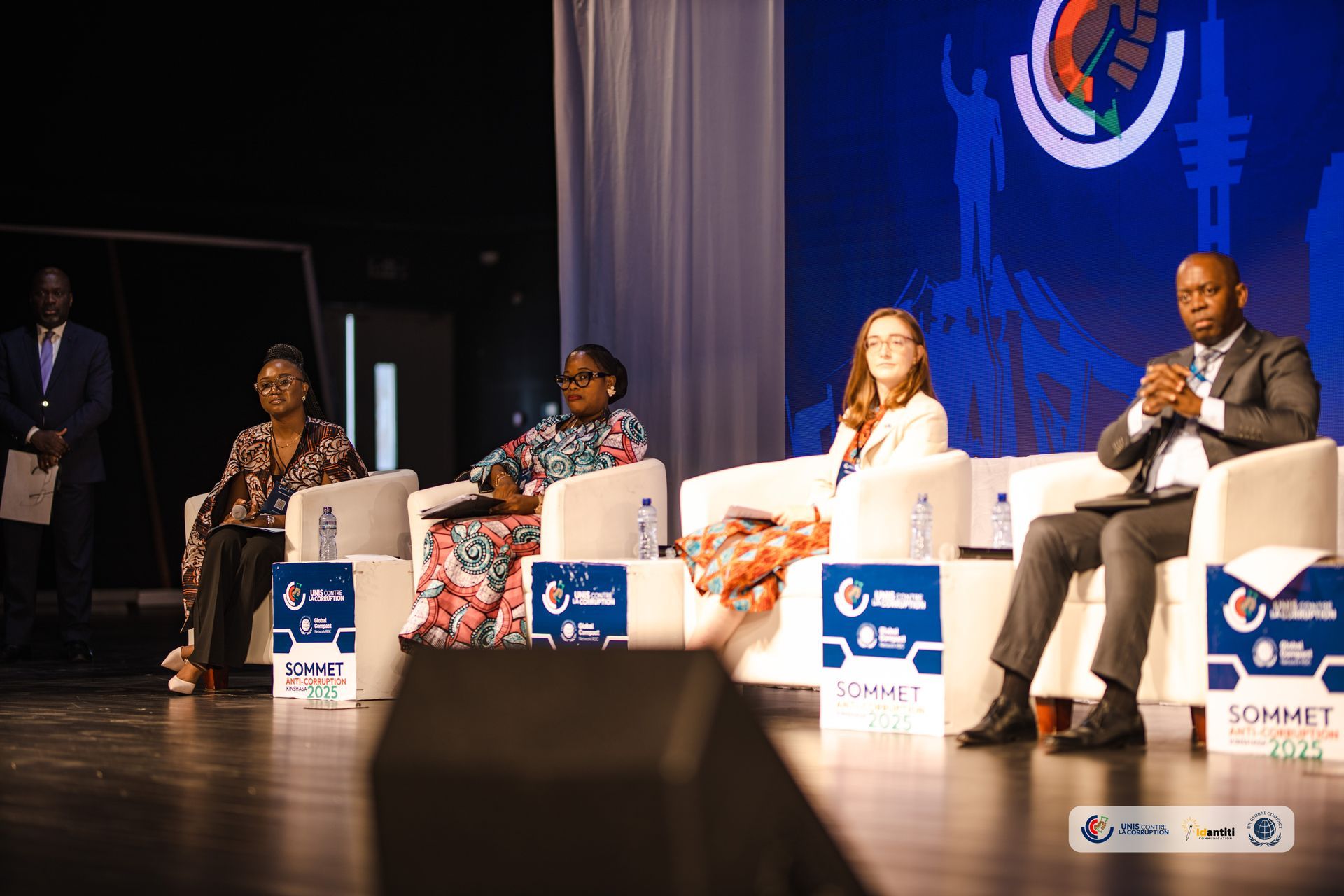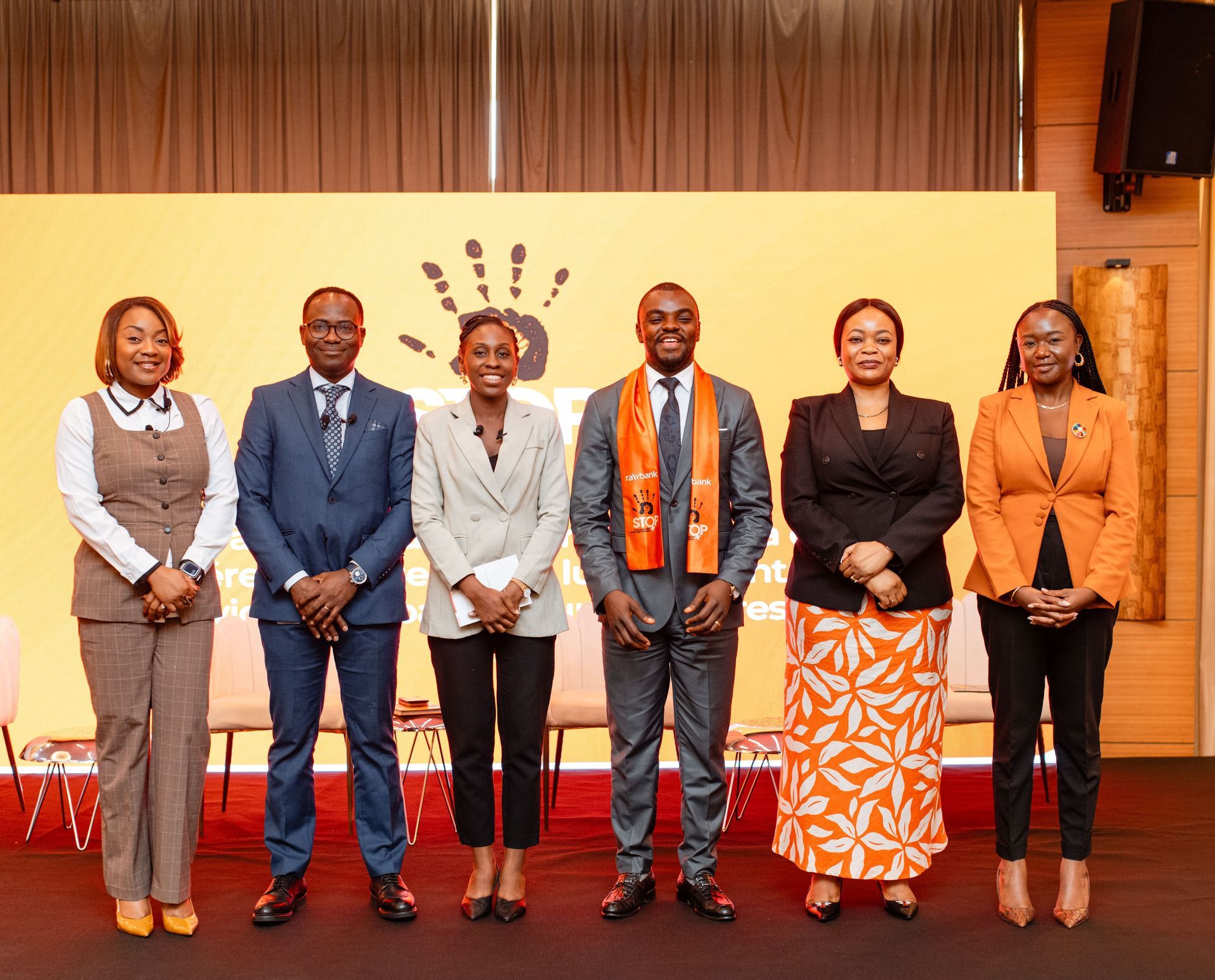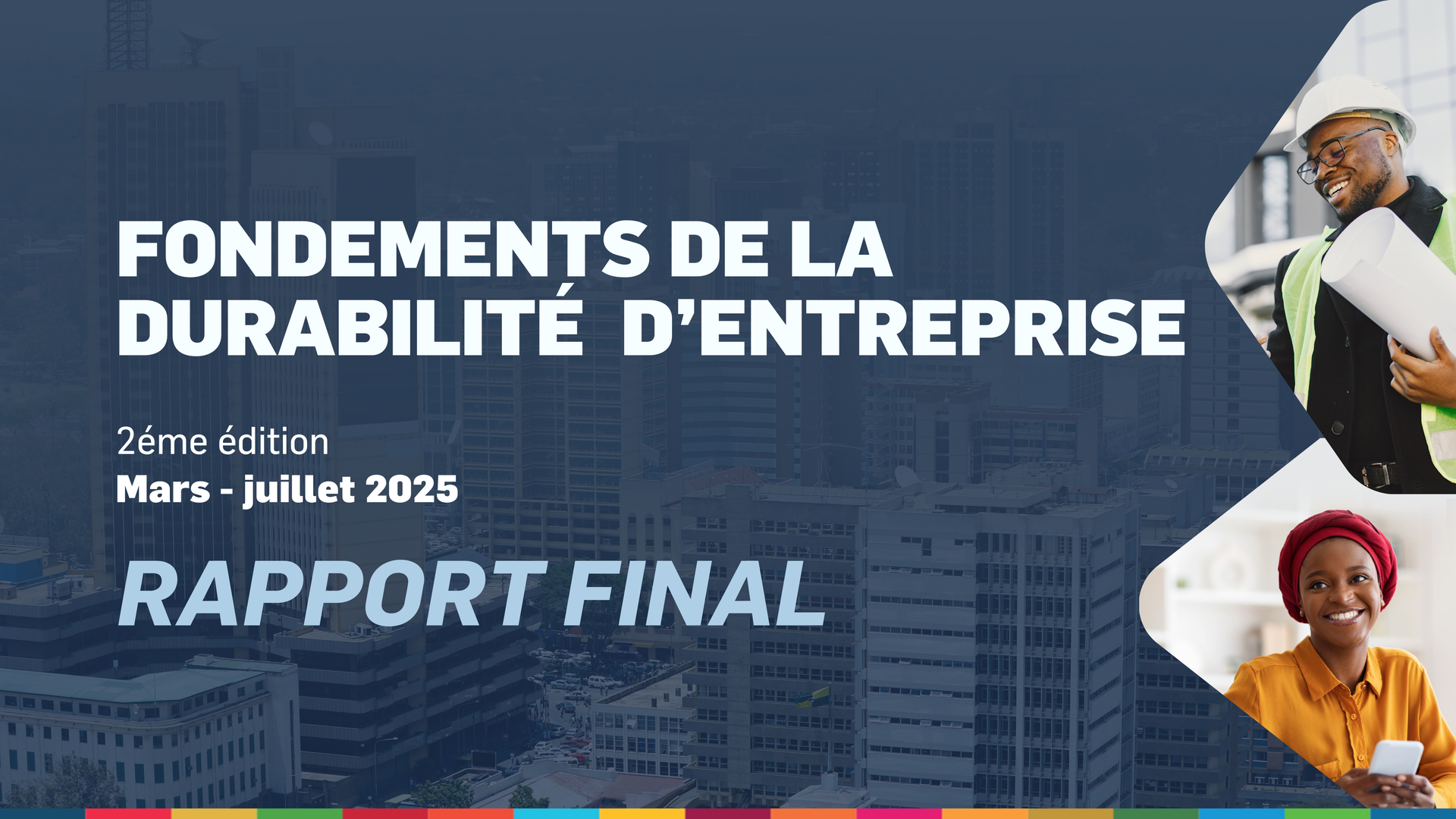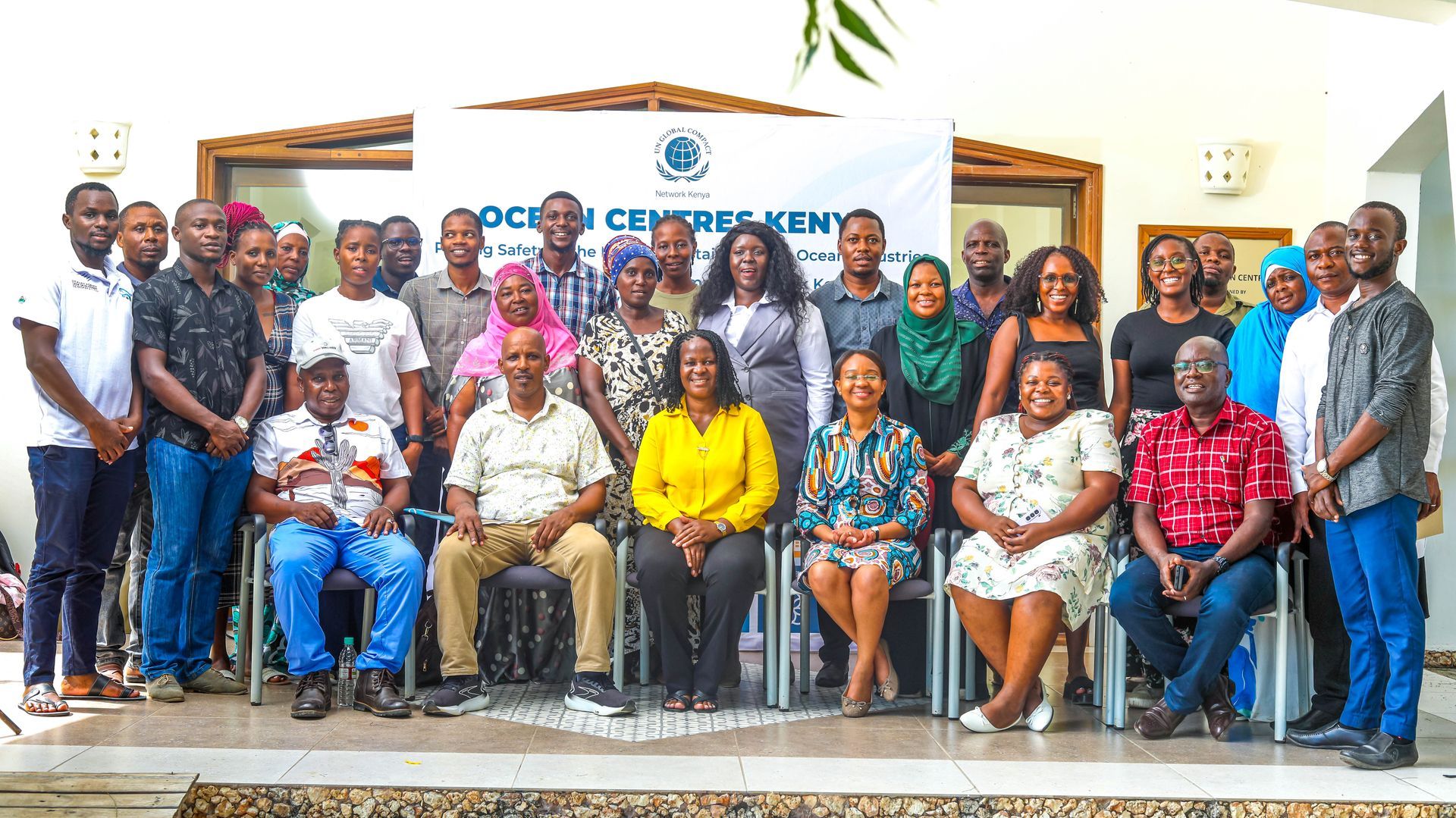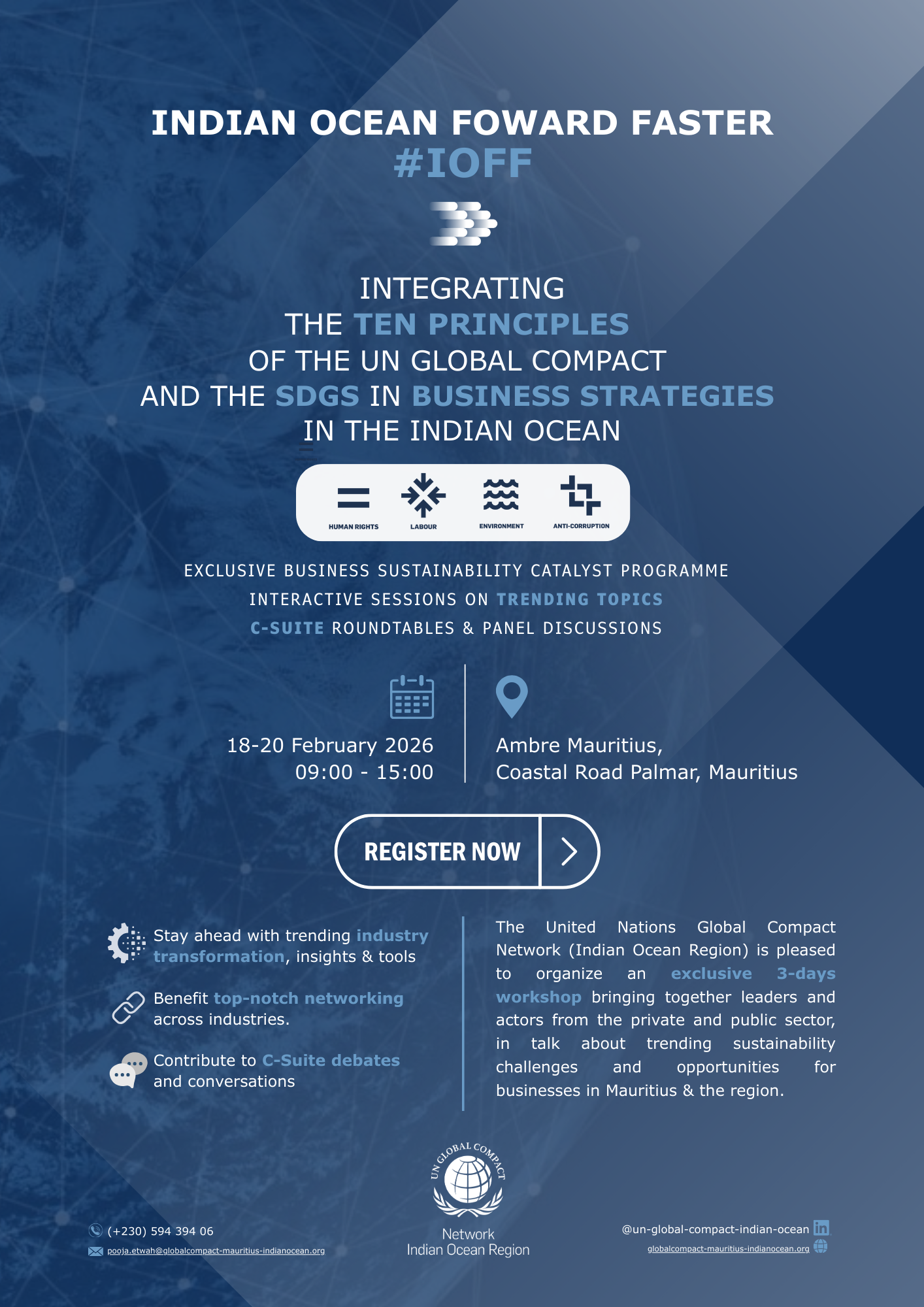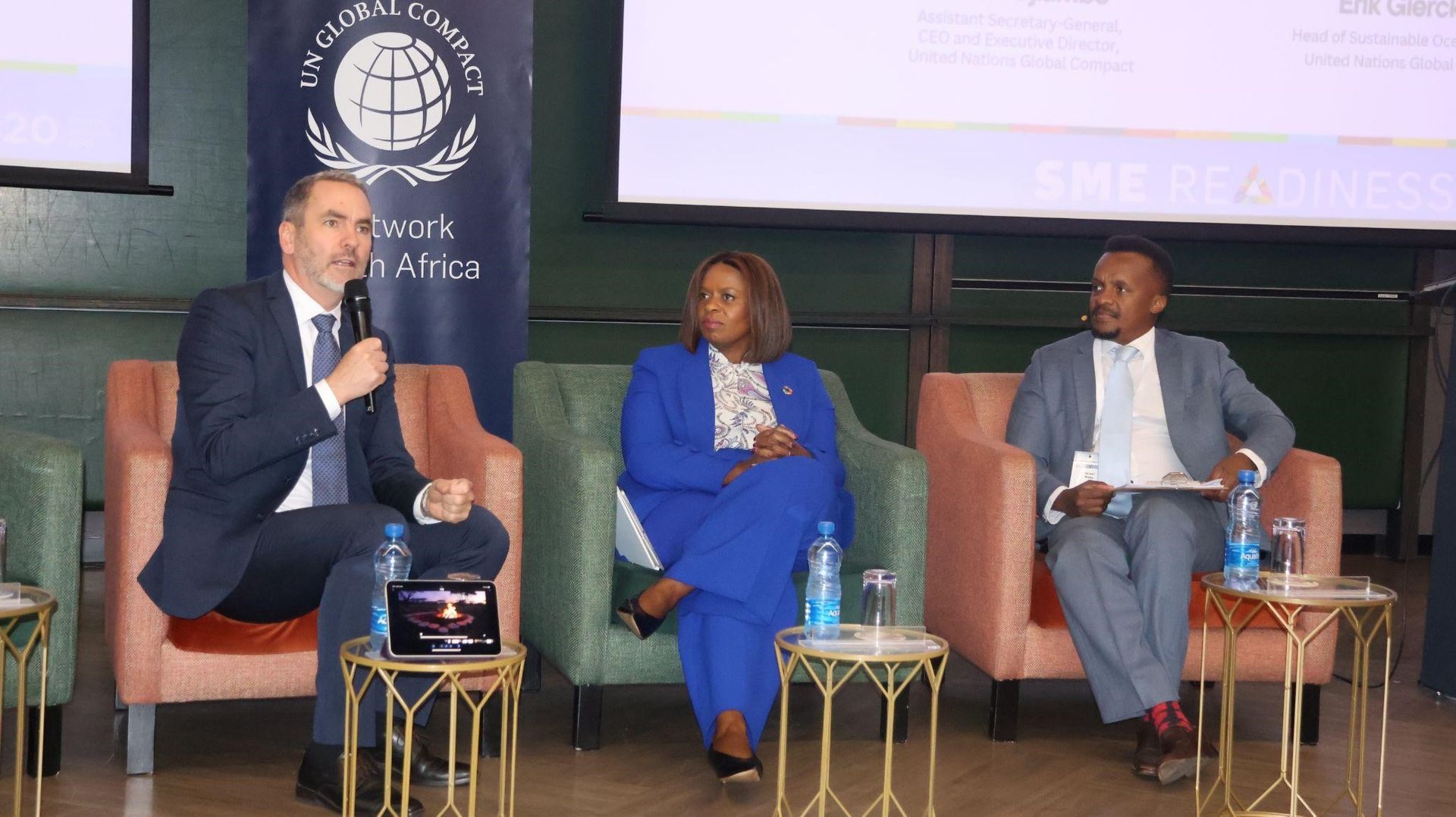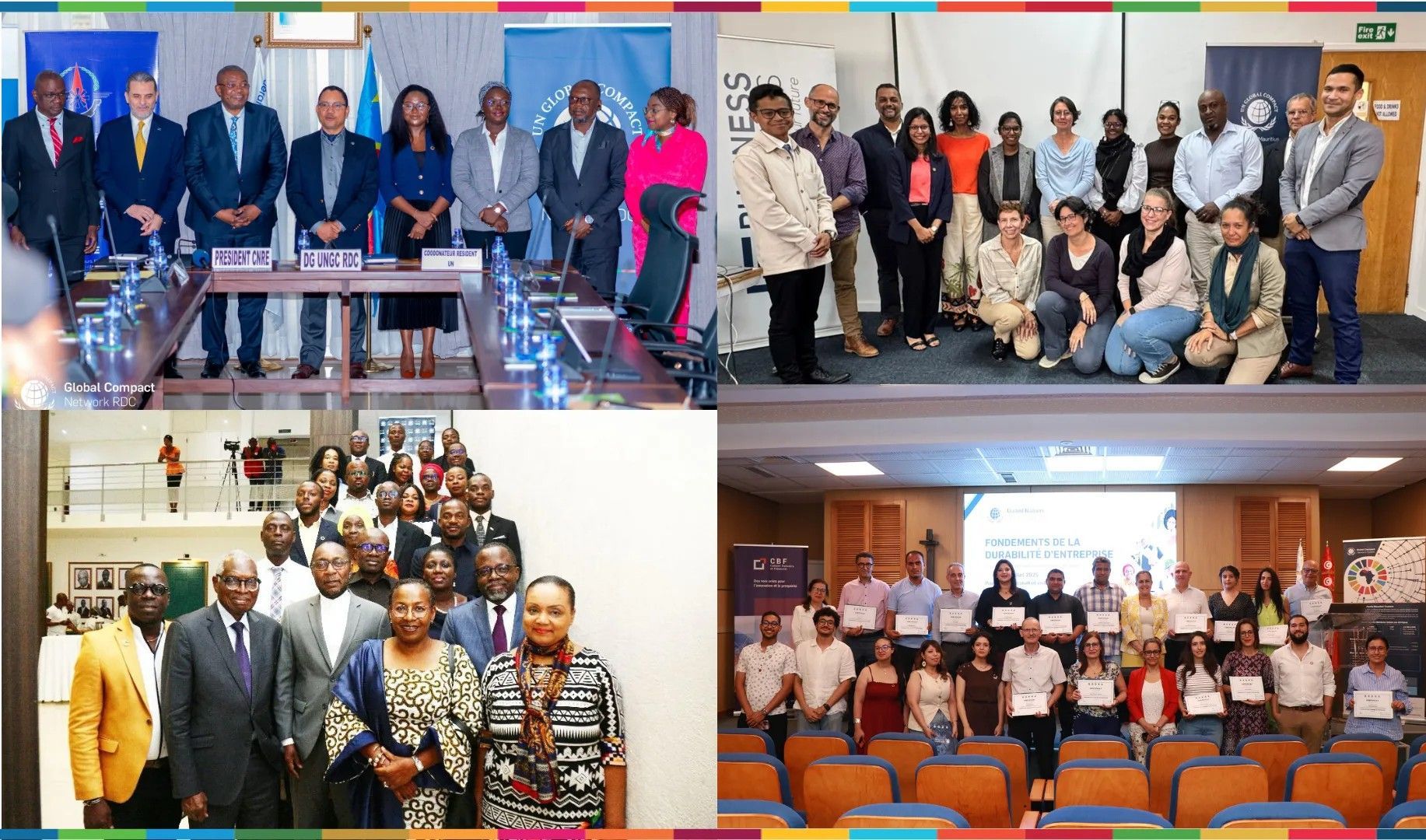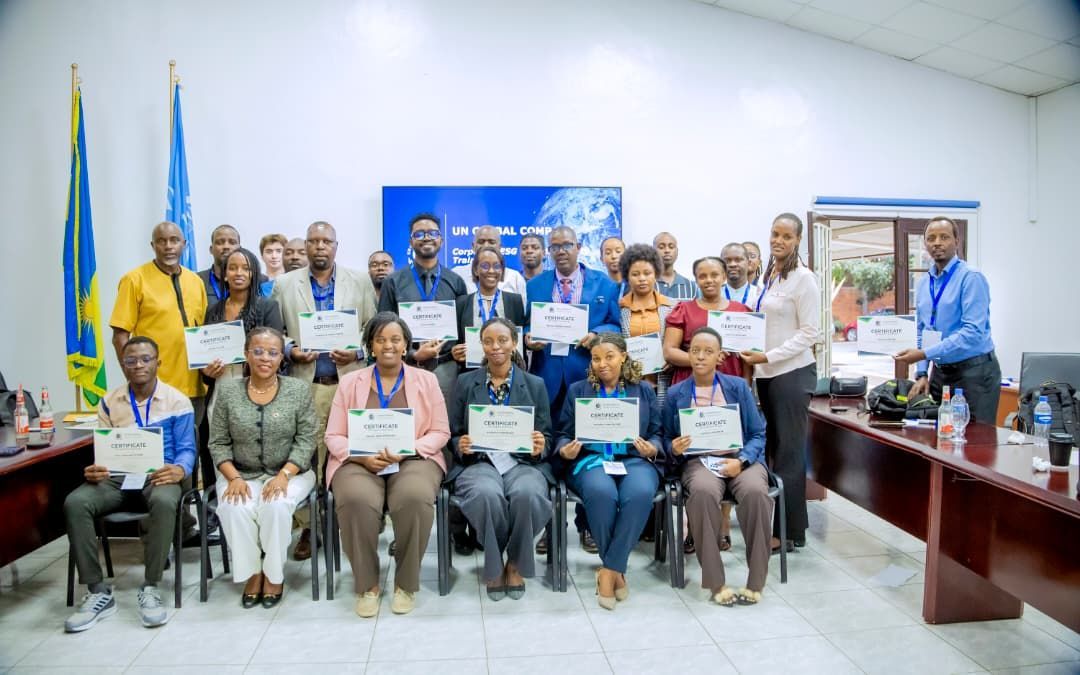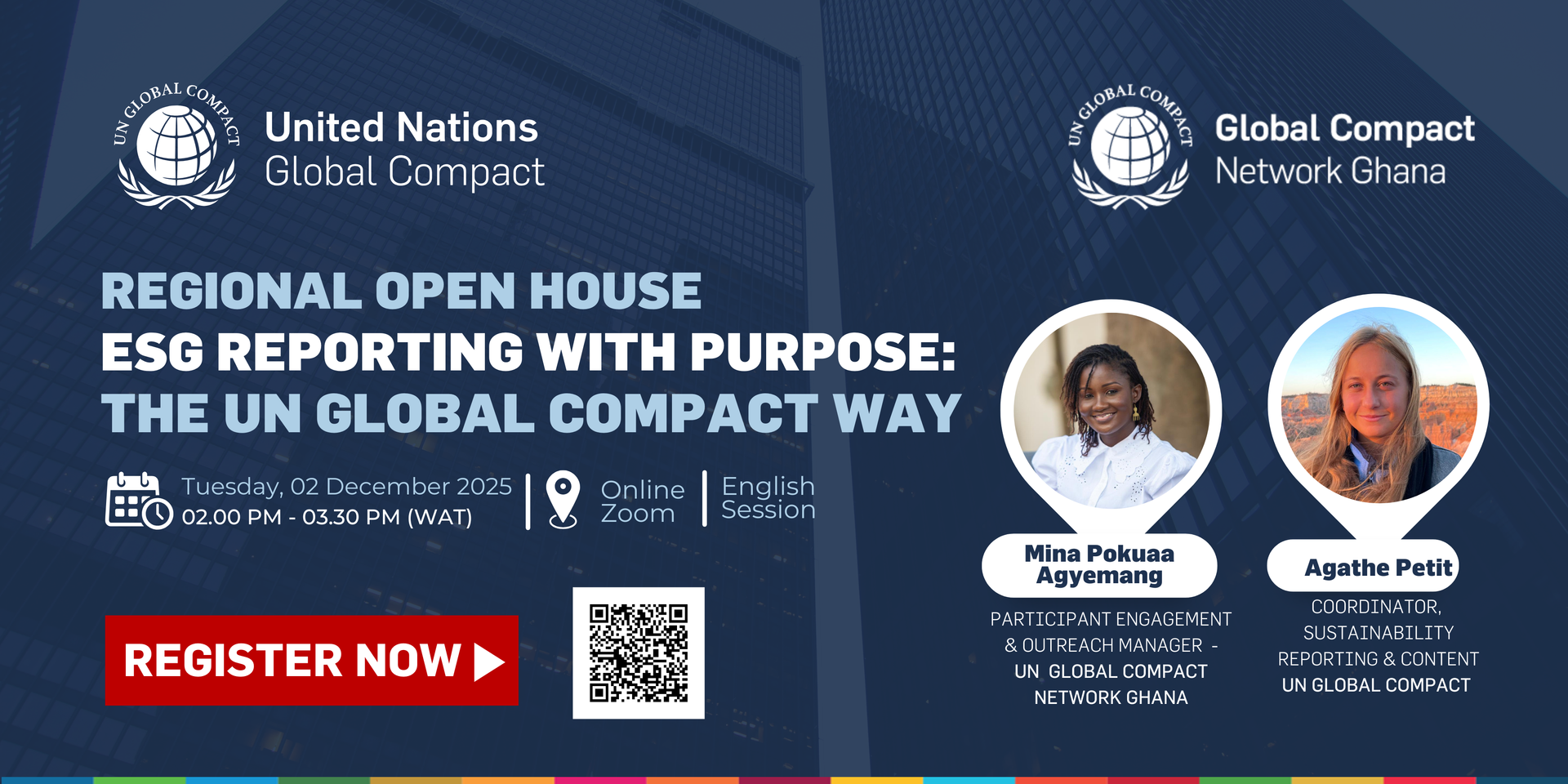ABLC at the 2023 Africa Climate Summit
The Africa Business Leaders Coalition (ABLC) showcases accelerated private sector climate action at the Africa Climate Summit in Kenya.
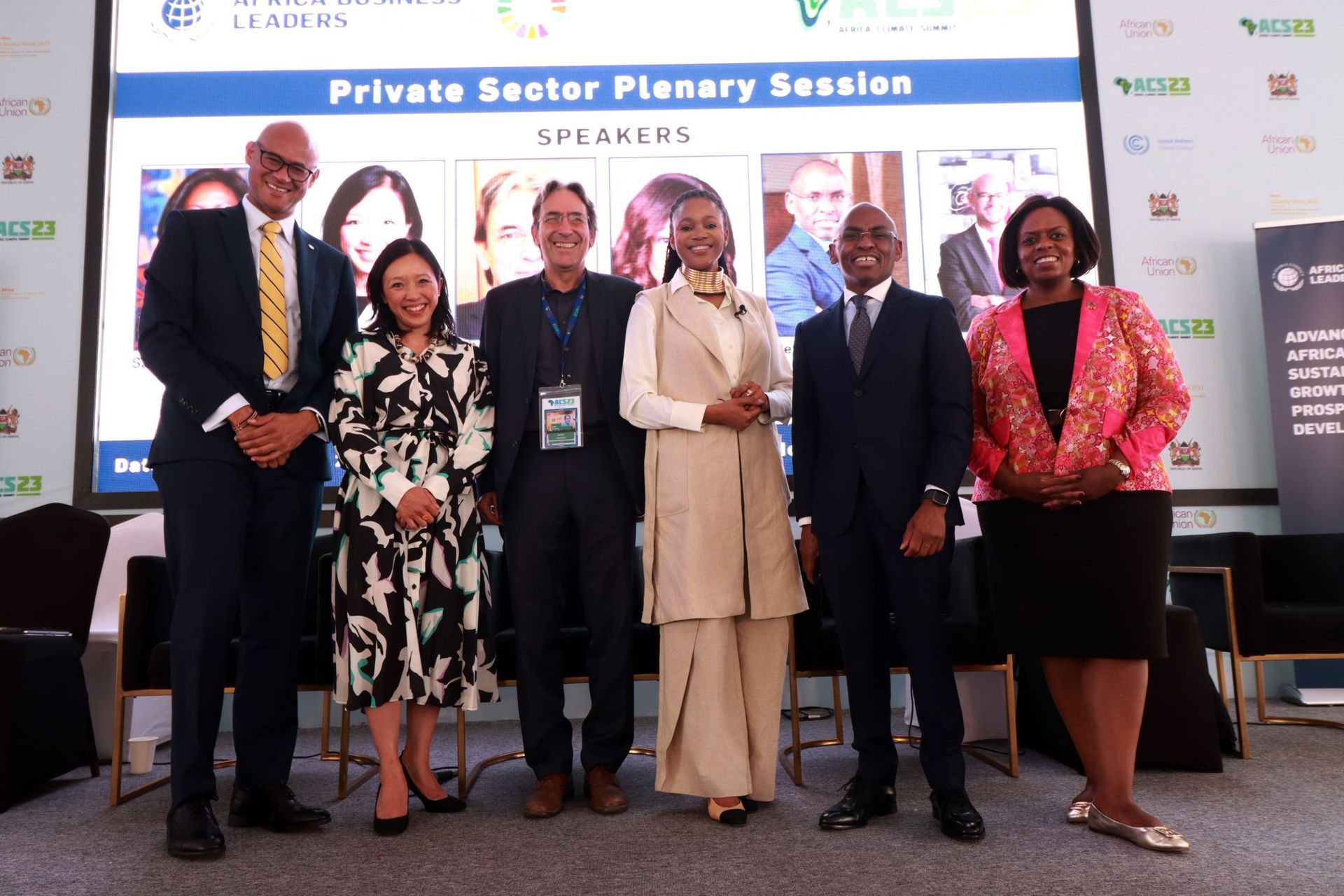
Nairobi, Kenya
During a plenary session at the Africa Climate Summit today, the Africa Business Leaders Coalition (ABLC) called for the private sector to accelerate climate action to advance Africa's sustainable growth, prosperity and development in line with the Summit’s theme of “Driving Green Growth and Climate Finance Solutions for Africa and the World”.
The Africa Business Leaders Coalition is a pan-African CEO-led initiative emanating from the UN Global Compact Africa Strategy 2021–2023. It includes over 55 companies representing $150bn in revenue and over one million employees. It provides a platform for African business leaders to have a unified private sector voice as they actively and meaningfully engage on the continent’s most pressing issues through an organized, forward-looking, principles-based approach.
During the event hosted by Sanda Ojiambo, CEO and Executive Director, UN Global Compact; Bogolo Kenewendo, Special Adviser to UN Climate Change Champions; Jeremy Awori, CEO of Ecobank; Peter Ndegwa, CEO of Safaricom; Helmy Abouleish, CEO of Sekem and Elizabeth Yee, EVP of Programs of The Rockefeller Foundation, members of ABLC highlighted the progress they have made since they first released their Climate Statement at COP27 in Sharm El Sheikh, Egypt.
The African Business Leaders’ Climate Statement called for more businesses to fulfill their climate commitments and become resilient to climate change. ABLC members have pledged to increase the share of renewables in their energy use and invest in climate-adaptation solutions, creating them where they do not exist. Members also committed to a just and equitable transition — one which ensures that their supply chains, value chains and local customers are the first to benefit from the switch to clean energy and greener forms of production.
Nearly one year on, participating companies of ABLC have progressed this ambition with:
- 40% more members measuring and disclosing Greenhouse gas (GHG) emissions;
- 90% more members increasing the share of renewables in their energy mix;
- 150% more members developing resilience plans, with 80% of members now explicitly accounting for climate risks;
- ABLC members are also at the forefront of embedding Just Transition plans in their businesses and value chains.
Helmy Abouleish, CEO of Sekem, spoke during the event about his company’s initiative to green the desert through carbon credit markets for smallholder farmers. As part of a 4-Phase scale up plan, by 2028 it is estimated 250,000 farmers will be reached, sequestering 9.6 million tons of CO2 emissions per year. He noted that this will be a tipping point for how the market views organic agriculture, providing higher returns for farmers while promoting sustainable development.
Jeremy Awori, CEO of Ecobank spoke about the creation of Sub-Saharan Africa’s first green bond which will channel global funding to renewable energy. $13.8mn of the $382mn fund has already been allocated to green projects, helping to close a funding gap where only 10% of capital needed to meet the SDGs in Africa is sourced from the continent.
Further progress from ABLC will be reported at the upcoming COP28 climate summit in Dubai in November.
Members of the ABLC commit to upholding the Ten Principles of the UN Global Compact and becoming a UN Global Compact participant within six months of joining.
Notes to Editors
About the UN Global Compact
As a special initiative of the United Nations Secretary-General, the UN Global Compact is a call to companies worldwide to align their operations and strategies with Ten Principles in the areas of human rights, labour, environment and anti-corruption. Our ambition is to accelerate and scale the global collective impact of business by upholding the Ten Principles and delivering the Sustainable Development Goals through accountable companies and ecosystems that enable change. With more than 18,000 companies and 3,800 non-business signatories based in over 101 countries, and 62 Local Networks, the UN Global Compact is the world’s largest corporate sustainability initiative — one Global Compact uniting business for a better world. For more information, follow @globalcompact on social media and visit our website at unglobalcompact.org and Africa Business Leaders Coalition
About the Africa Business Leaders Coalition
The Africa Business Leaders Coalition (ABLC) is a CEO-led initiative emanating from the UN Global Compact Africa Strategy 2021–2023 committed to advancing sustainable growth, prosperity, and development in Africa by bringing measurable impact to its most pressing issues. The ABLC works closely with the UN Global Compact Hub in Abuja and 10 African Local Networks operating across Africa.
